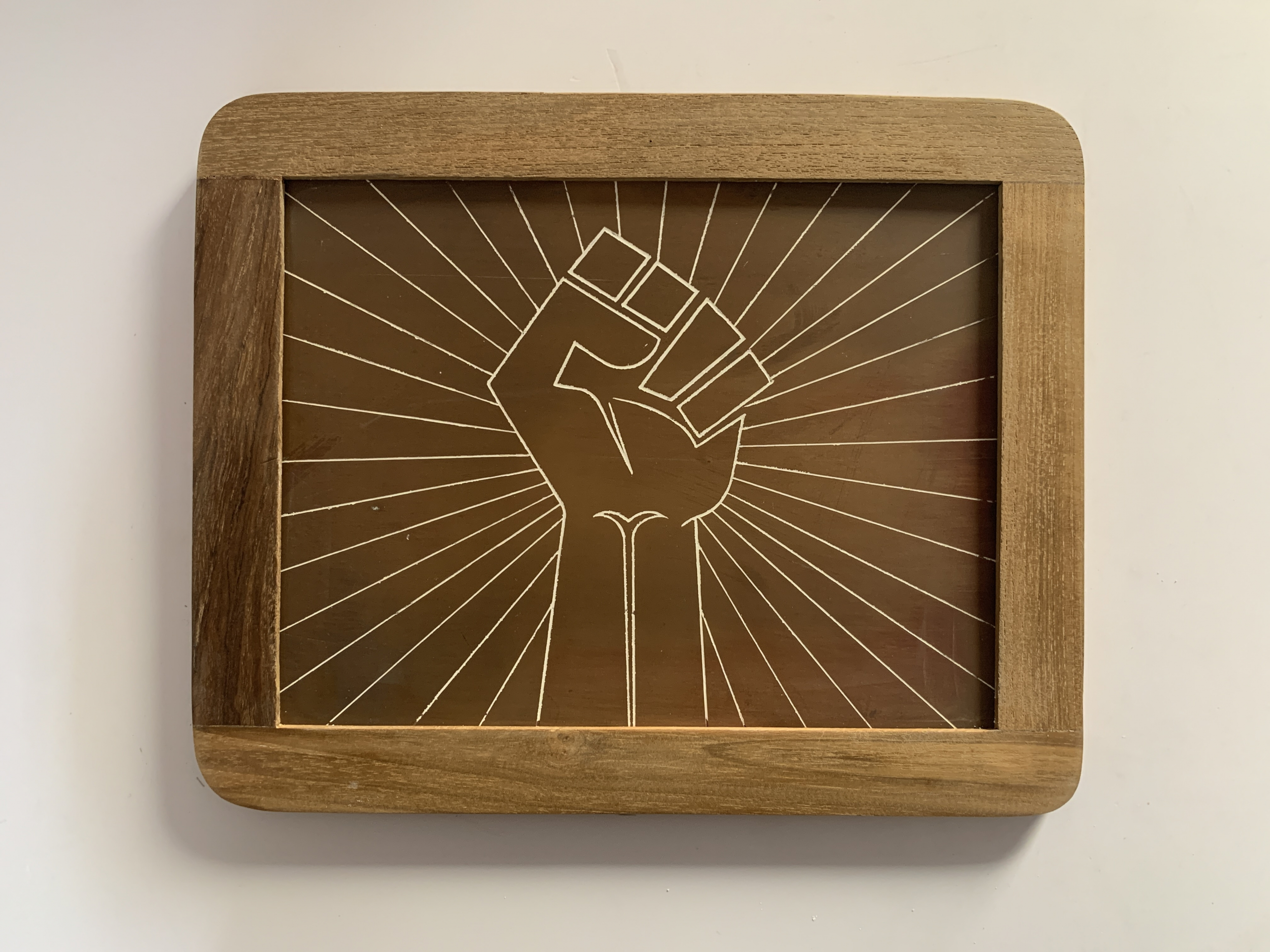
In October 2015, in the first issue of Guftugu, we described what we were up against:
If singing and dancing, poetry and prose, film and painting have all been possible even in the most brutal times history has witnessed, we can believe our situation today too cannot subdue what we can do with artistic practice of all sorts, as well as education. Every day we see new evidence of authoritarianism in India – the sort of tyranny that impinges on our cultural work, and on those who wish to partake of what we imagine for them. Even the day-to-day cultural practices by the wide range of people who make up India are vulnerable to the aggression of the “cultural police” in different guises. These policemen want to tell us all what to eat, wear, read, speak, pray, think. They want to tell us how to live.

We made a promise to fight this:
Guftugu aims to reflect and critique present-day aggression against culture; to articulate creative resistance against the degeneration of democratic values and institutions; and to achieve this by freely doing what we do best: writing, painting, imagining, speculating and debating.
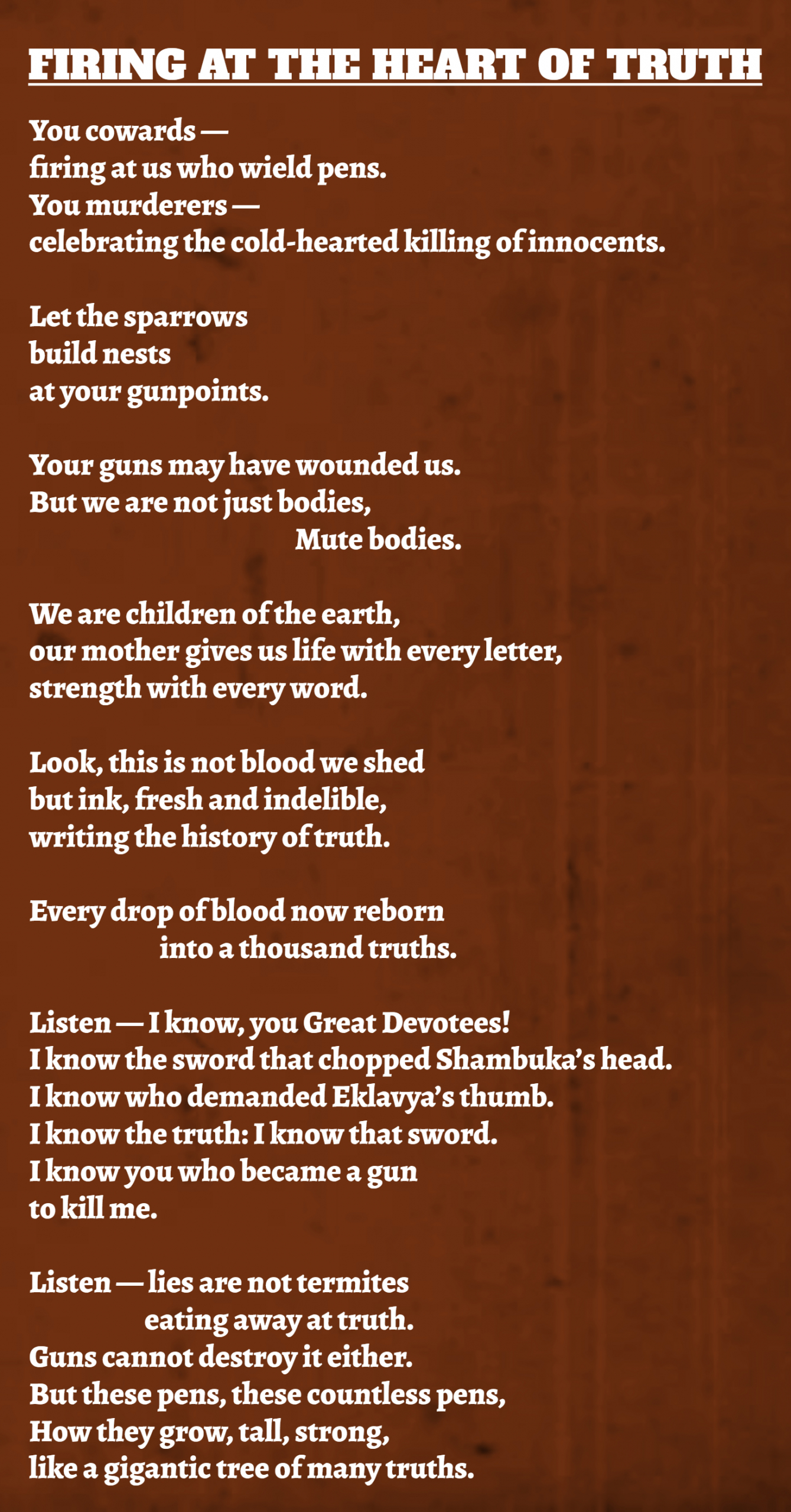
The challenge has grown since then.
The question confronting us every day, in the classroom, the courts, on the streets, and even in our neighbourhoods and homes, is this: How do we grow our resistance everyday? How do we learn to hear, understand, and amplify, in solidarity, in word, image and gesture, the voices of all the people, young and old, in every nook and corner of the country, who are subject to discrimination, fear, hatred, poverty?
In other words: What kind of India do we want?
This is the kind of India our cultural community have asked for through Guftugu:
- A country bent on annihilating caste.
- A country where diverse communities mingle and thrive.
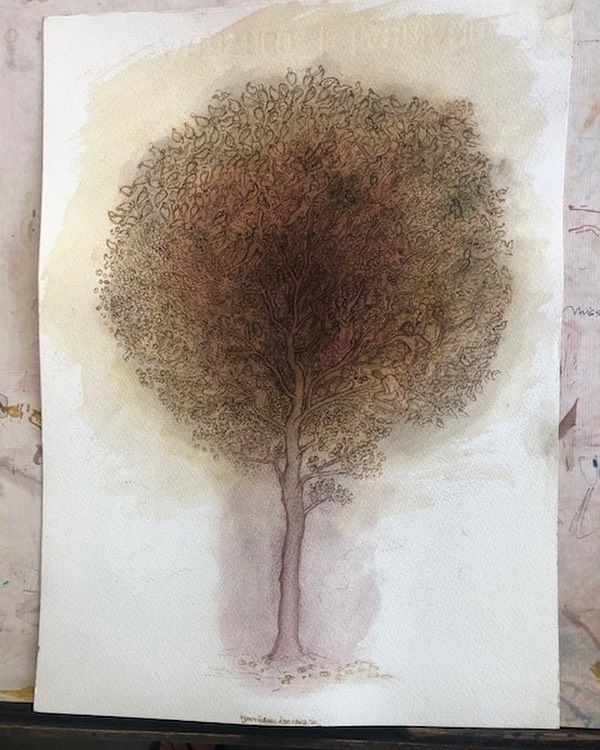 Image courtesy Gulammohammed Sheikh, Guftugu Issue 19
Image courtesy Gulammohammed Sheikh, Guftugu Issue 19
- A country where every person, whether Adivasi, woman, LGBTQ, organised or unorganised worker, can demand her rights to equality, dignity and a chance for a better life.
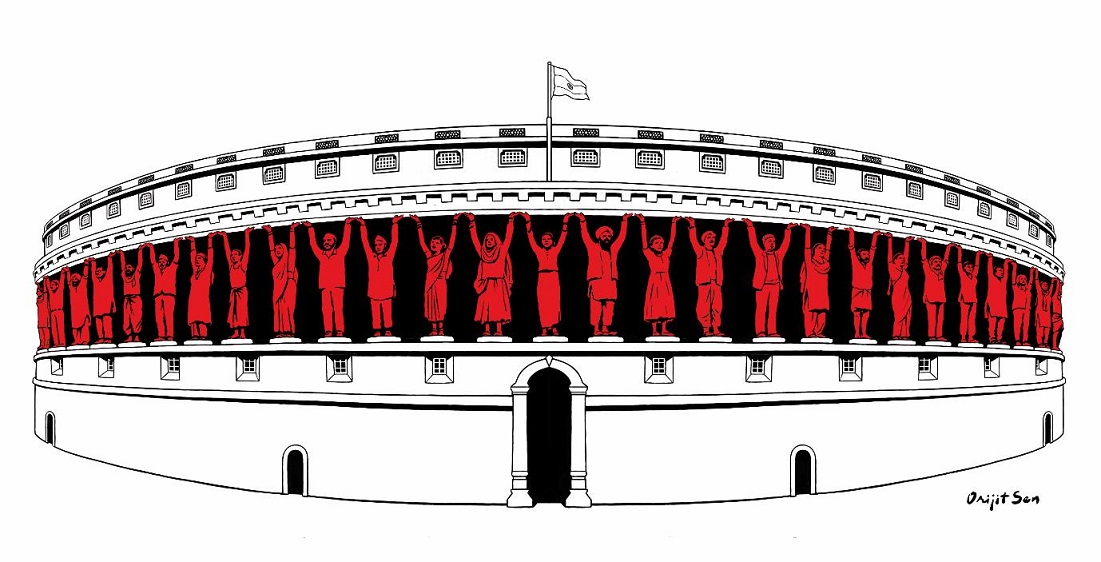
- A rational, secular country in which people are free to think; to doubt; to speculate and imagine; and always, to ask sharp questions.
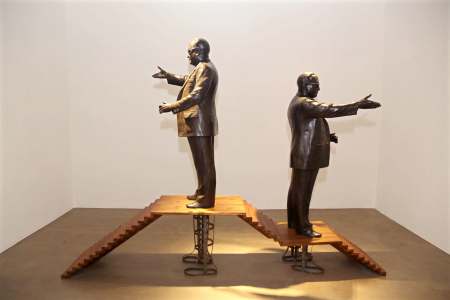
The dream of remaking India remains alive in our hearts. So does the hope that fuels the dream, and promises us that it can be done. It gives us the courage, whether in the pages of Guftugu or elsewhere, to speak up in any way we can. The only constant is resistance.
Githa Hariharan
K Satchidanandan
May 2022
